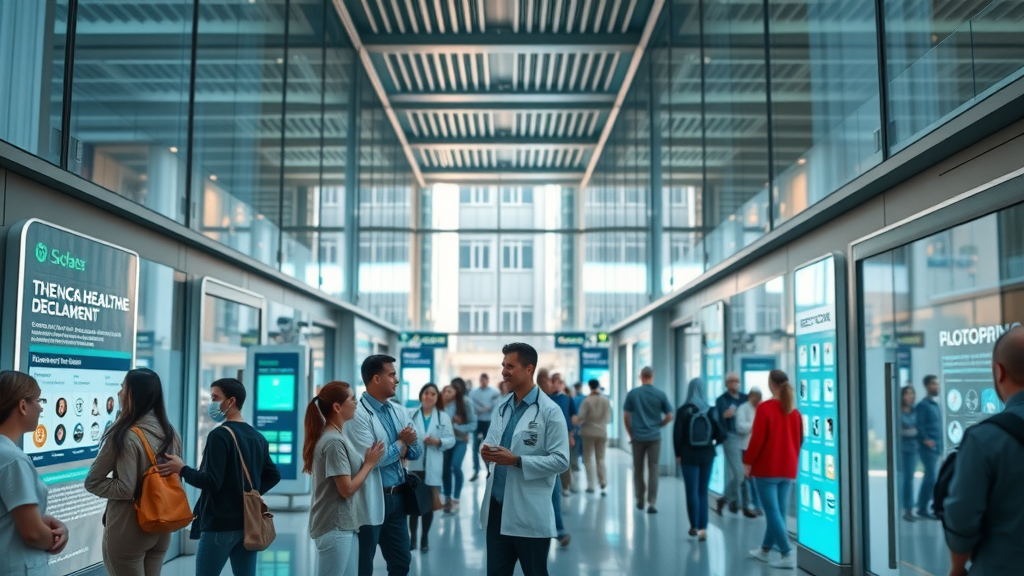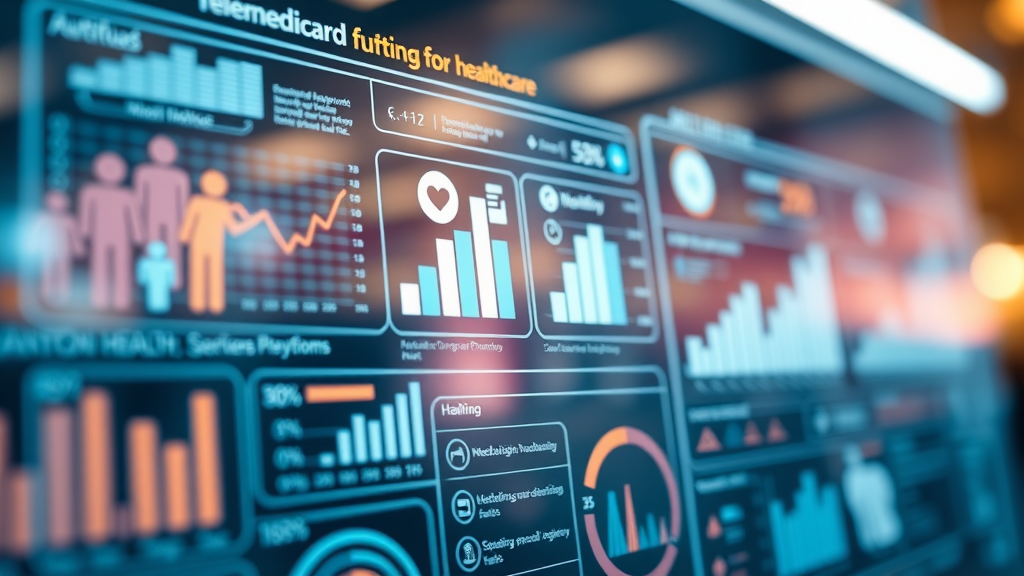How can digital platforms revolutionize the healthcare industry by fostering community and collaboration? As the future unfolds, understanding this transformation is crucial for patients and professionals alike, promising enhanced care and accessibility. Discover how technology is reshaping our health interactions in unprecedented ways.
Overview of the Future of Healthcare

The future of healthcare is evolving at a rapid pace as we witness the integration of technology into every aspect of medical practice. From telemedicine to wearable health devices, digital platforms are now crucial in providing care and facilitating patient engagement. This rapid transformation encourages more interactive and convenient healthcare experiences, making access easier for patients across various demographics.
Healthcare is no longer confined to physical clinics and hospitals; instead, it is extending into digital realms that allow for enhanced communication between professionals and patients. As such, the responsibilities of healthcare providers have shifted significantly, requiring them to adapt to these changes while maintaining patient-centered care.
The Role of Digital Platforms in Healthcare
How Digital Platforms Enhance Patient Engagement

One of the most significant impacts of digital platforms is on patient engagement. Platforms such as My Wellness Train Network enable patients to access a wealth of information regarding their health through digital kiosks, apps, and websites. Patients can now connect with healthcare professionals via telehealth consultations or engage in community health forums.
Moreover, access to personalized health information through these platforms demystifies medical jargon, enabling patients to make more informed decisions about their health. Interactivity is at the forefront of this engagement, with features such as chatbots and AI-driven recommendations enhancing patient support.
Building Community Through Online Resources

Creating communities within the healthcare sector allows for richer interactions and support systems. Online resources like forums and social media groups successfully connect healthcare seekers with wellness professionals, fostering discussions that enhance shared knowledge and comprehensive care strategies.
For instance, platforms focusing on community engagement offer wellness seekers a chance to learn from healthcare providers while sharing their experiences. This communal approach not only promotes individual health but also cultivates a supportive network that actively participates in health education and wellbeing campaigns.
Expert Insights on Digital Transformation in Healthcare
Tom Jones, a pharmacist and digital marketing expert, states, "The goal is to get out there and promote wellness to the community."

According to experts like Tom Jones, the future of healthcare is contingent on how effectively businesses leverage digital platforms to communicate and engage with their communities. The aim is not simply to respond to health inquiries but to advocate for wellness as a proactive, preventive measure. By establishing platforms like My Wellness Train Network, healthcare professionals can better serve their communities and enhance public health literacy.
Challenges and Opportunities in the Future of Healthcare
Addressing Misinformation in Healthcare

A pressing challenge in the future of healthcare is the rampant misinformation that pervades the public sphere. To foster trust and clarity in communication, healthcare providers must take a proactive role in educating their communities.
Through digital platforms, healthcare professionals can disseminate accurate information more effectively, thereby reducing confusion and uncertainty around medical topics. Engagement initiatives and strategic content dissemination will equip community members with reliable and truthful health information necessary for informed decision-making.
Creating Inclusive and Accessible Healthcare Solutions

Inclusivity is essential for any effective healthcare system. The future of healthcare must ensure all community members, regardless of socioeconomic status, have access to quality information and resources. By utilizing digital platforms to create accessible content, healthcare can reach underserved populations and tailor solutions to their unique needs.
Partnerships between digital platforms and community organizations can further enhance outreach efforts, ensuring that health services are truly for everyone. It is crucial for digital solutions to accommodate diverse populations through language access, cultural sensitivity, and financial considerations.
The Impact of Community on Health Outcomes
How Community Engagement Improves Health Literacy
Engaging communities in health education significantly boosts health literacy, allowing individuals to navigate their health challenges successfully. When patients receive clear, community-supported information, they are empowered to manage their health proactively, which leads to better health outcomes.
The Importance of Professional Collaboration

The collaboration between different healthcare professions enhances the quality of care as each expert contributes their specialized knowledge. Platforms like My Wellness Train encourage these interactions by providing spaces for professionals to share best practices and strategies, ultimately improving patient care and community health.
What You’ll Learn About the Future of Healthcare
- Understanding the role of digital platforms in healthcare
- The importance of community in health outcomes
- Expert insights on navigating future challenges

Key Takeaways on the Future of Healthcare
As we look ahead, the future of healthcare hinges on the effective integration of technology with human connection. Community-driven platforms, like My Wellness Train Network, demonstrate the potential of collaborative health strategies and challenge healthcare professionals to foster a culture of wellness education.
Digital solutions not only streamline healthcare delivery but also build stronger community bonds that enhance overall well-being. Embracing this future means prioritizing accessibility, engagement, and transparency in all healthcare interactions.
FAQs About the Future of Healthcare
What will be the future of healthcare?
The future of healthcare will likely see increased integration of technology, focusing on enhancing patient engagement through digital platforms, personalized care, and community involvement.
What will healthcare look like in 2050?
By 2050, we anticipate a seamless blend of digital and in-person healthcare services, with advanced technologies ensuring a fully integrated patient experience that prioritizes wellness and preventive care.

What will healthcare look like in 100 years?
In 100 years, healthcare may evolve to a point where AI and robotics play a central role in diagnosis and treatment, making healthcare more efficient, personalized, and accessible to all.
What is one of the biggest issues facing the future of healthcare?
A significant challenge remains combating misinformation in healthcare. It is crucial to foster trust through reliable information to support informed decision-making among patients.
Conclusion: Embracing the Future of Healthcare
The future of healthcare is bright, as digital platforms open up new avenues for community building and engagement. The integration of technology into health services goes beyond convenience; it fosters a supportive ecosystem where both patients and providers thrive. Embracing this future means committing to inclusivity, education, and proactive wellness promotion for our communities. As we move forward, let us harness technology’s power to build a healthier and more connected world.
Call to Action: Join the Conversation on Digital Healthcare Solutions
We invite you to participate in the discussion about the revolutionized landscape of healthcare. Join us at My Wellness Train and share your experiences, insights, and questions as we work collectively towards a healthier future.
 Add Row
Add Row  Add
Add 



Write A Comment